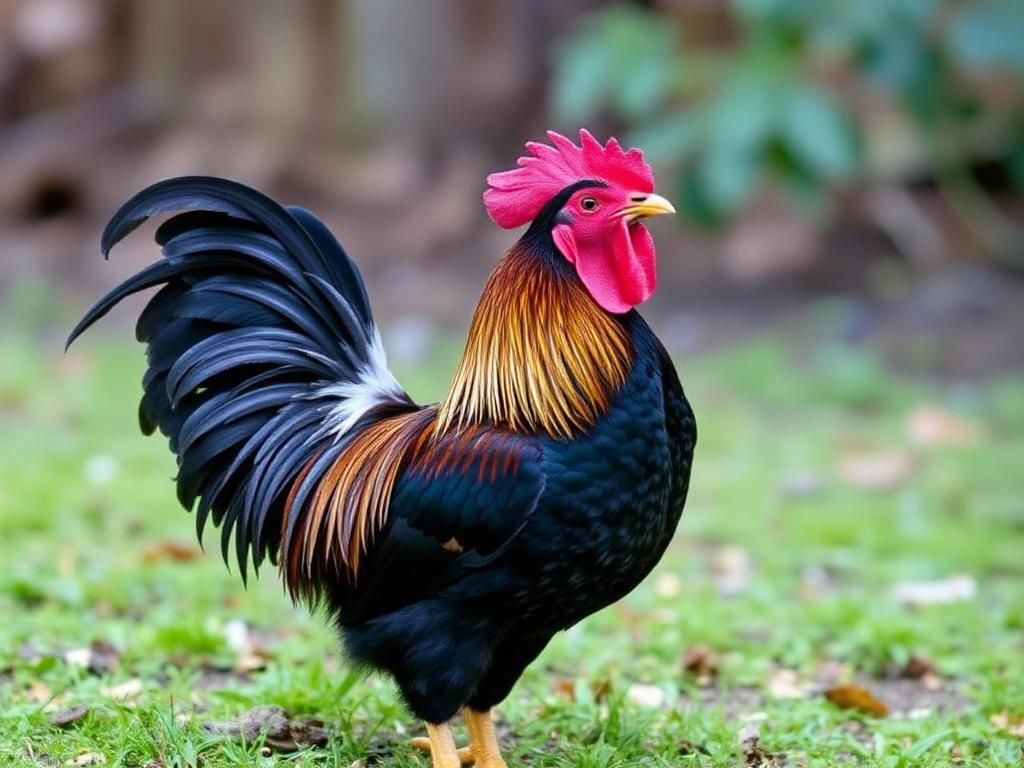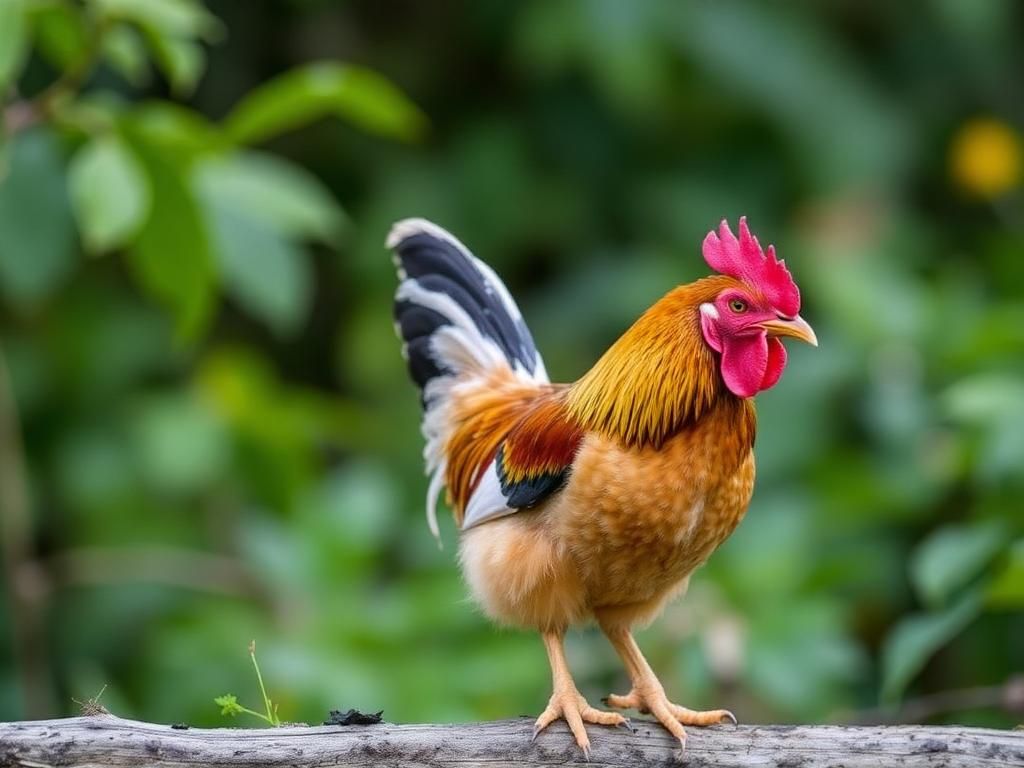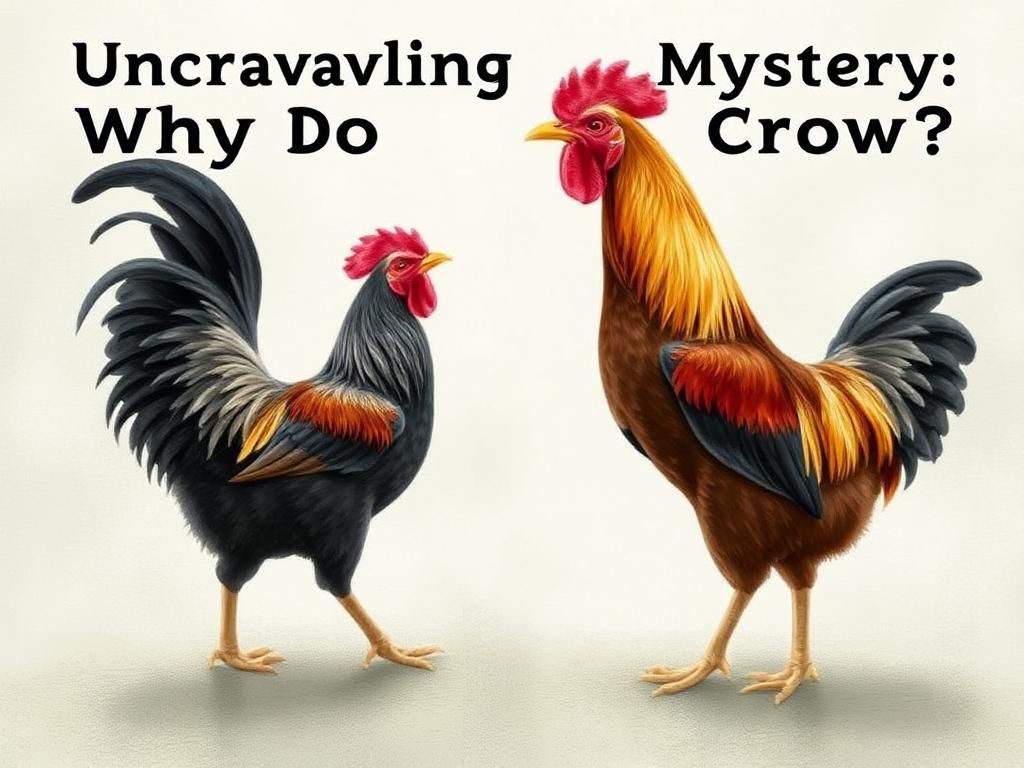Cockerels, also known as roosters, play a vital role in poultry farming, serving as symbols of dawn and the vibrant life on a farm. Among their myriad behaviors, one stands out prominently: the characteristic crowing. This distinct vocalization not only marks the beginning of a new day but also conveys various essential messages within the poultry community. In this article, we aim to delve into the intriguing question, why do cockerels crow, examining the biological, social, and environmental factors that contribute to this fascinating behavior.
Understanding Cockerel Behavior
What is a Cockerel?
In simple terms, a cockerel refers to a young male chicken, typically one that is less than a year old. Unlike hens, which are female chickens, or mature males known as roosters, cockerels are still in a developmental phase. This distinction is important for understanding their behavior and its nuances. The behavior of cockerels is intricately linked to their roles within the flock and the larger poultry ecosystem.
The Importance of Crowing
Crowing is not merely an act of vocalization; it represents a crucial aspect of communication among poultry. It serves various functions, from asserting territory to attracting mates. In the animal kingdom, vocal expressions often play significant roles in social structures, and for cockerels, crowing is an essential element of their identity and behavior.
Natural Causes of Crowing
Biological Rhythms
Understanding why do cockerels crow begins with examining their biological rhythms. Circadian rhythms, which govern the sleep-wake cycles of most creatures, play a significant role in determining when cockerels are most active. As daylight approaches, the change in light triggers hormonal fluctuations that often result in crowing. The initial crowing of the day typically occurs just before sunrise, a behavior influenced by the internal clocks of these birds.
Territorial Behavior
Cockerels are known for their strong territorial instincts. As they mature, they establish their territory, often crowing to signal their dominance and ownership to others. This vocal display acts as a warning to rival cockerels, demonstrating that they are ready to defend their space. The crowing sound can vary in intensity and length depending on the individual cockerel’s confidence and the presence of competitors.
Mating Calls
Another essential aspect of crowing is its role as a mating call. During the mating season, cockerels use their crowing to attract hens, showcasing their health and genetic strength. Crowing during this period may be more frequent and vigorous than at other times, as cockerels compete for the attention of potential mates.
Environmental Triggers
Light and Noise
Crowing is significantly influenced by environmental factors such as natural light and noise. Changes in light, particularly the sunrise, are crucial triggers for crowing behavior. Additionally, disturbances such as loud noises can prompt cockerels to crow in response to perceived threats or changes in their environment. For example, the sound of a car horn or a barking dog can lead to a chorus of crows, as each bird assesses the potential danger.

Social Interactions
Social dynamics within a flock play a critical role in crowing behavior. The presence of other birds can encourage cockerels to vocalize. Cockerels may crow in response to the calls of other poultry, thereby establishing their social status or reacting to competition. This complex interplay of social interactions highlights why understanding why do cockerels crow requires considering their surroundings and relationships.
Myths and Misconceptions About Crowing
“Roosters Crow Only at Dawn”
Contrary to popular belief, cockerels do not solely crow at dawn. While it is true that early morning is a peak time for crowing, cockerels can vocalize at various times throughout the day and night. Factors such as environmental disturbances, social interactions, and territorial disputes can all lead to crowing at unexpected hours.
“Crowing Predicts Weather Changes”
Another common myth is the belief that crowing can indicate impending weather changes. This notion is deeply rooted in cultural beliefs surrounding the connection between animals and the environment. However, while cockerels may exhibit changes in vocalization in response to weather conditions, scientific evidence does not support the idea that crowing can accurately predict weather changes. The relationship is more nuanced, often linked to other environmental triggers rather than a direct indication of forthcoming meteorological events.
Variations in Crowing Among Cockerels
Different Breeds and Their Crowing Patterns
There is considerable variation in crowing patterns among different cockerel breeds. Certain breeds are renowned for their distinctive sounds, which can vary in pitch and volume. For example, the Bantam breed is often recognized for its higher-pitched crow, while larger breeds like the Rhode Island Red may produce deeper, more resonant sounds. The variations in crowing among breeds serve distinct purposes, such as attracting mates or signaling territory.
Age and Experience
The age and experience of a cockerel significantly influence its crowing behavior. Younger cockerels may crow less frequently and may not have fully developed their vocal abilities. As they mature, their crowing becomes more pronounced and confident. Moreover, cockerels learn from older, experienced roosters, adapting their crowing style and behavior within their social environment. Observing this developmental journey can provide insights into the social hierarchy and dynamics within a flock.
Health Factors Related to Crowing
Stress and Illness
Stress and illness can have profound effects on a cockerel’s crowing behavior. Factors such as overcrowding, changes in habitat, and feeding schedules can lead to increased stress, which may suppress or change the nature of their crowing. Additionally, health issues can cause alterations in vocalization patterns, with sick cockerels either crowing less or exhibiting unusual sounds. Understanding these health factors is critical for poultry care and management.

Nutrition and its Effects
Nutrition plays a fundamental role in a cockerel’s overall health, including their vocal capabilities. A balanced diet rich in vitamins and minerals supports vocal health and can enhance crowing quality. Conversely, nutritional deficiencies can lead to abnormal vocalizations or a reduced desire to crow. Poultry owners should prioritize proper nutrition to ensure their cockerels are healthy and able to communicate effectively.
Conclusion
In summary, the question of why do cockerels crow encompasses a wide range of biological, social, and environmental factors. From establishing territory to attracting mates, crowing serves multiple functions within the life of these remarkable birds. By understanding the underlying reasons and circumstances that lead to this behavior, poultry enthusiasts can appreciate the complexity of cockerels and their contributions to the farming ecosystem.
References and Further Reading
For those interested in learning more about poultry behavior and cockerel care, consider exploring the following resources:
1. [Small Scale Poultry Farming](https://smallfarmersjournal.com)
2. [Poultry Science Association](https://poultryscience.org)
| Aspect | Description |
|---|---|
| Crowing Timing | Cockerels crow at various times throughout the day, not just at dawn. |
| Territorial Behavior | Crowing is used to establish dominance and claim territory. |
| Breeds Variations | Some breeds have unique crowing patterns distinguished by pitch and volume. |
| Health Influences | Stress and illness can alter crowing frequency and quality. |
| Nutritional Impact | Balanced diets promote vocal health and better crowing. |
Frequently Asked Questions
1. Do cockerels crow before they are mature?
Yes, younger cockerels may begin to crow as early as several months old, but their vocalizations will become more pronounced as they mature.
2. Can I prevent my cockerel from crowing?
While it is challenging to stop a cockerel from crowing entirely, techniques such as isolation during nighttime or soundproofing may help reduce noise.
3. Are there specific times when cockerels are more likely to crow?
Cockerels are more likely to crow at dawn, but they can vocalize at any time due to various triggers.
4. Is it true that some cockerels crow more than others?
Yes, individual personality, breed differences, and environmental factors can influence the frequency of crowing.
5. How can I tell if my cockerel is healthy by its crowing?
A healthy cockerel typically has a strong, clear crow. Changes in crow quality or frequency might indicate health issues.
6. Do cockerels crow during specific seasons?
While cockerels may crow year-round, crowing patterns often increase during the mating season when they are actively seeking hens.
7. Can changes in the environment trigger crowing?
Yes, alterations in light, noise, and flock dynamics can prompt cockerels to crow more frequently.
8. Why do some cockerels have a deeper crow compared to others?
The depth of a cockerel’s crow is influenced by factors like breed, age, and individual vocal cord development.
9. How does social hierarchy affect crowing among cockerels?
Higher-ranking cockerels often crow more confidently and frequently, while lower-ranking ones may crow less to avoid conflicts.
10. What should I do if my cockerel crows excessively?
Assess the environment for stressors, and consider consulting an avian veterinarian if the excessive crowing persists or is accompanied by other concerning behaviors.
